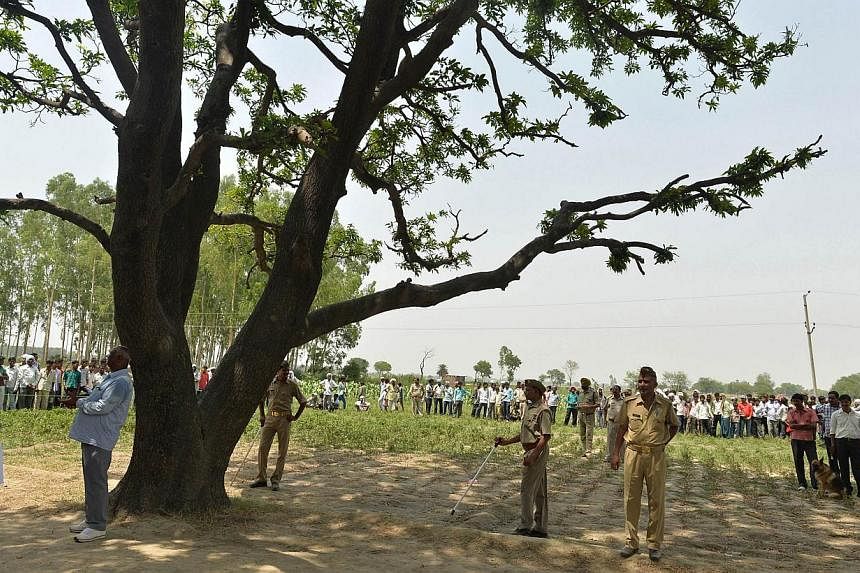NEW DELHI (AFP) - Two girls found hanging from a tree earlier this year in northern India committed suicide and were not gang-raped and murdered as previously thought, the country' top policing agency said on Thursday.
The cousins, aged 12 and 14, were found hanging from a tree in an impoverished village in Uttar Pradesh state in May, reigniting global outrage over crimes against women in India.
The families of the girls said they were raped and lynched by men from a higher caste after going into the fields at night to relieve themselves because their impoverished homes did not have toilets.
But the head of the Central Bureau of Investigation (CBI) told the Hindustan Times the girls committed suicide, after police earlier concluded that they were not raped.
"Our probe found that the two girls had committed suicide and weren't murdered," CBI director Ranjit Sinha said in comments published on Thursday.
"The local police had erroneously conducted their probe along the lines that the sisters were killed," Sinha added.
A CBI official was quoted as saying the girls took their own lives "because of family pressure owing to disapproval of their friendship with a villager".
A CBI spokesman confirmed to AFP that the sisters "indeed committed suicide", adding that details of the case would be disclosed to the media later on Thursday.
The case sparked fresh debate about India's treatment of women, less than two years after seething public anger over the fatal gang-rape of a student on a moving bus in Delhi.
That attack led to tougher laws for rapists and other sex offenders and new policies for police in dealing with the large numbers of attacks against women.
Police arrested five men over the case in Uttar Pradesh after the families accused authorities of failing to act because they came from a lower caste.
The CBI's findings were based on forensic tests and polygraphs which suggested that the main witness in the case had been lying, according to the newspaper report.
Women rights activists were sceptical of latest twist to the long-running case and urged the CBI to reinvestigate.
"It must be taken seriously, decisions should not be taken in haste. The CBI should revisit its report and culprits must be punished," Delhi Commission for Women chairwoman Barkha Shukla told reporters.
The All India Democratic Women's Association said it "did not approve" of the CBI's "theory", stressing that many questions were "still unanswered" in the case.

